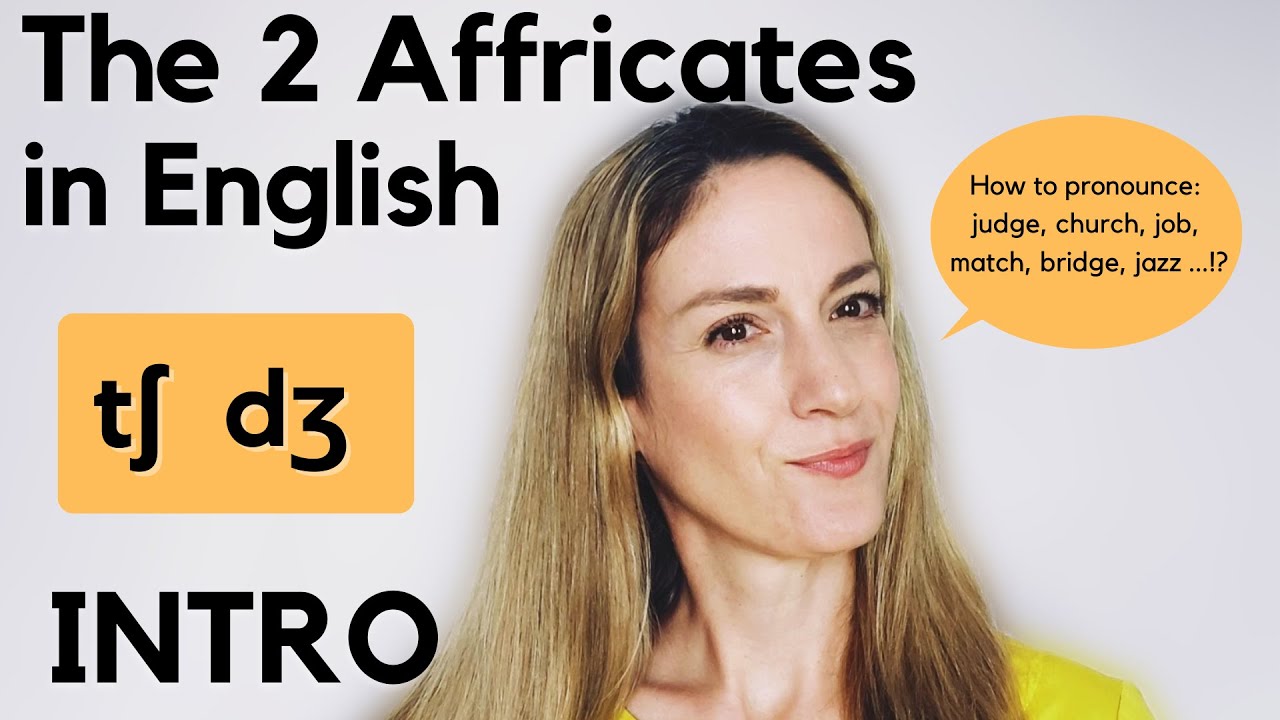The /ð/ sound (th)
Summary
TLDRThis educational video script introduces the /ð/ sound, also known as the 'Voiced dental fricative,' found in English words like 'this,' 'that,' and 'other.' It explains how to produce this sound by creating friction between the tongue and the top teeth while vocalizing. The script provides examples of words with the /ð/ sound in different positions, such as 'they,' 'although,' and 'with.' It also invites viewers to explore more about English sounds through additional videos and live online classes, encouraging engagement with the English Language Club on social media.
Takeaways
- 🔤 The /ð/ sound is a 'Voiced dental fricative', produced by creating friction between the tongue and the top teeth.
- 👅 To pronounce /ð/, slightly stick out your tongue and position it so that the top teeth rest on it.
- 🎶 The sound is voiced, which means the vocal cords vibrate to produce the sound.
- 🌬️ The /ð/ sound is created by forcing air out between the teeth while the tongue is positioned against them.
- 📚 The phoneme /ð/ is typically spelled with the letters 'th' in English words.
- 📘 Examples of words with the /ð/ sound at the beginning include 'they', 'though', and 'those'.
- 📙 Words with /ð/ in the middle include 'other', 'although', 'brother', and 'southern'.
- 📗 Words ending with the /ð/ sound include 'with', 'smooth', and 'booth'.
- 🎥 Additional educational resources are available in the form of videos covering various English sounds and the phonetic chart.
- 💬 The English Language Club offers live online classes and encourages interaction via social media platforms like Twitter and Facebook.
Q & A
What is the /ð/ sound in English pronunciation?
-The /ð/ sound is a 'Voiced dental fricative' in English, produced by creating friction between the tongue and the top teeth.
How do you create the /ð/ sound?
-To produce the /ð/ sound, you need to stick out your tongue slightly and rest your top teeth on your tongue, forcing air out between your teeth while vibrating your vocal cords.
What is the difference between the /ð/ sound and other consonants?
-The /ð/ sound is unique as it is a fricative, which means it is produced by the high-pressure airflow through a narrow space between the tongue tip and the top teeth.
Which words demonstrate the use of the /ð/ sound at the beginning?
-Words like 'they', 'though', 'those', and 'then' begin with the /ð/ sound.
Can you provide examples of words with the /ð/ sound in the middle?
-Words such as 'other', 'although', 'brother', and 'southern' have the /ð/ sound in the middle.
What are some words that end with the /ð/ sound?
-Examples of words ending with the /ð/ sound include 'with', 'smooth', and 'booth'.
How is the /ð/ phoneme typically spelled in English?
-The /ð/ phoneme is usually spelled with the letters 'th', as seen in words like 'the', 'mother', 'whether', and 'either'.
What does it mean for a sound to be 'voiced'?
-A 'voiced' sound, like /ð/, is one where the vocal cords vibrate to produce the sound, as opposed to 'unvoiced' sounds where the vocal cords do not vibrate.
Why might producing the /ð/ sound feel unnatural for some people?
-Producing the /ð/ sound might feel unnatural for those who are not accustomed to sticking out their tongue and positioning it between their teeth, which is required for this sound.
Are there additional resources available for learning English sounds?
-Yes, there are additional videos on each group of sounds including Vowels, Diphthongs, Single Consonants, and Consonant Pairs, as well as a video explaining the phonetic chart.
How can one book a live online class with the English Language Club?
-To book a live online class with the English Language Club, one can visit their website or follow them on Twitter and Facebook for more information.
Outlines

This section is available to paid users only. Please upgrade to access this part.
Upgrade NowMindmap

This section is available to paid users only. Please upgrade to access this part.
Upgrade NowKeywords

This section is available to paid users only. Please upgrade to access this part.
Upgrade NowHighlights

This section is available to paid users only. Please upgrade to access this part.
Upgrade NowTranscripts

This section is available to paid users only. Please upgrade to access this part.
Upgrade NowBrowse More Related Video

The 2 Affricate Sounds | tʃ & dʒ | English Pronunciation

English Pronunciation Training | Improve Your Accent & Speak Clearly

How to pronounce words ending in S - Pronunciation of final S in English

BBC English Accent | Tutorial

Sound More English with Aspirated Consonants | English Pronunciation

Sound Change - Phonological Rules, Rule Orders & Relative Chronology (part 5 of 5)
5.0 / 5 (0 votes)